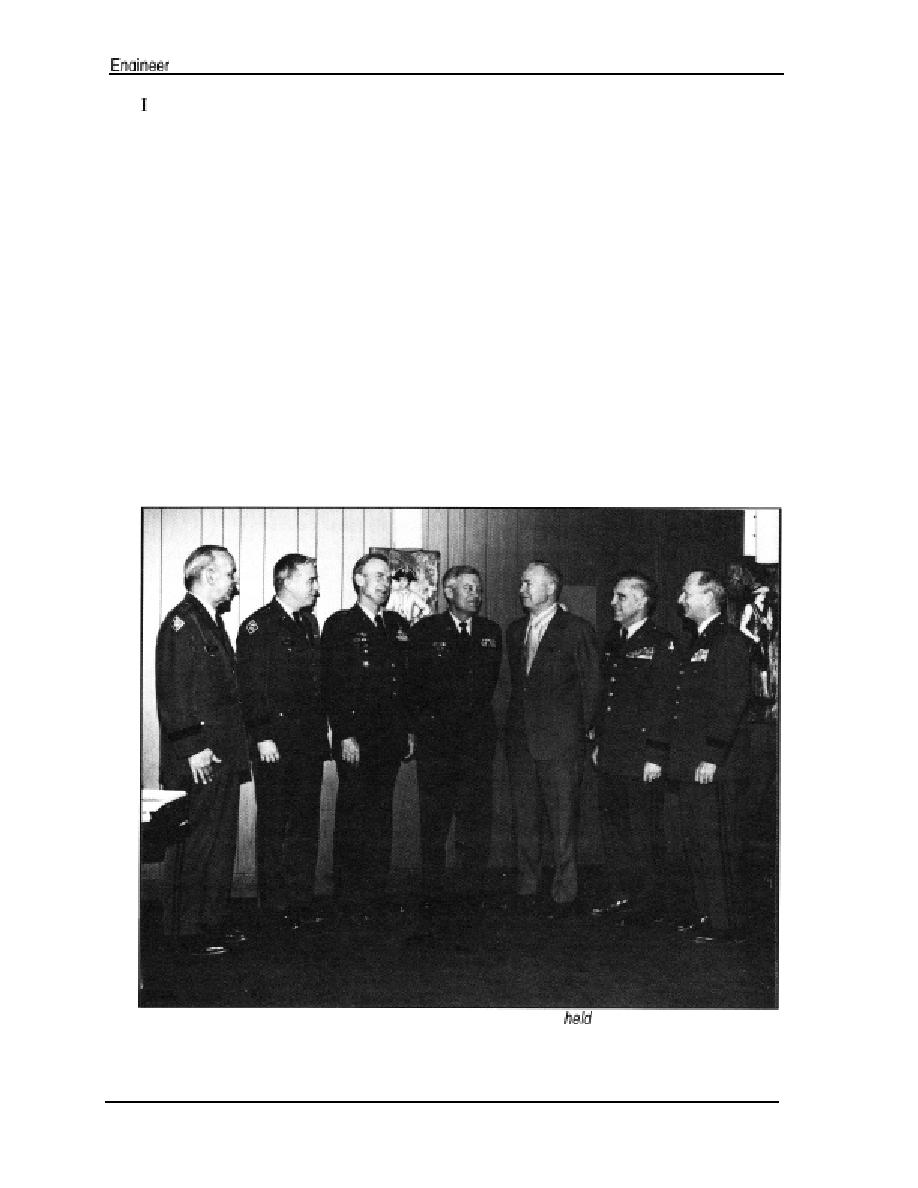
Memoirs
A:
can remember spotty drug problems, mostly marijuana. I emphasize spotty because our soldiers
were busy and at night went to bed. Nothing like the problems we had in World War II with the
poor attitude in my 2d Battalion. As mentioned, we had very good officers all the way through
the system, and we had conscientious enlisted personnel. As time went on, the noncommissioned
officers became weaker because replacements didn't have the experience. I just feel that the
secret to the 18th Engineer Brigade's morale and discipline situation was the fact that we had a
clear mission, were organized to do it, and worked hard at it. The worst thing for a soldier is to
have nothing to do, particularly if he's in a foxhole.
Q:
What about the one-year tour?
A:
It created leadership and performance problems. It was hard to retrain our combat efficiency
every year. It was not a good scenario. The whole war was not well structured, as I look back on
it. The one-year tour was part of the problem. I don't know of anybody that liked the one-year
tour except the individual when his tour was over.
To summarize the Vietnam experience into just a compact thought, some things came to my mind.
One was we really needed to do something about the Army. Regardless of the sentiment about
the Vietnam War or the way it was done, our Army wasn't as good as it should have been.
Also, I learned again the importance of leadership of the troops and the value of remembering
families, even though remote. I think the letter I wrote to the families was valuable. Another was
A reunion of former commanders of the 18th Engineer Brigade
in 1972. Left to right, MG
William Roper, MG John W. Morris, MG John Eider, MG Andrew Rollins, MG Charles Duke (Ret.),
MG Robert R. Ploger and MG Henry Shrader.
78



 Previous Page
Previous Page
